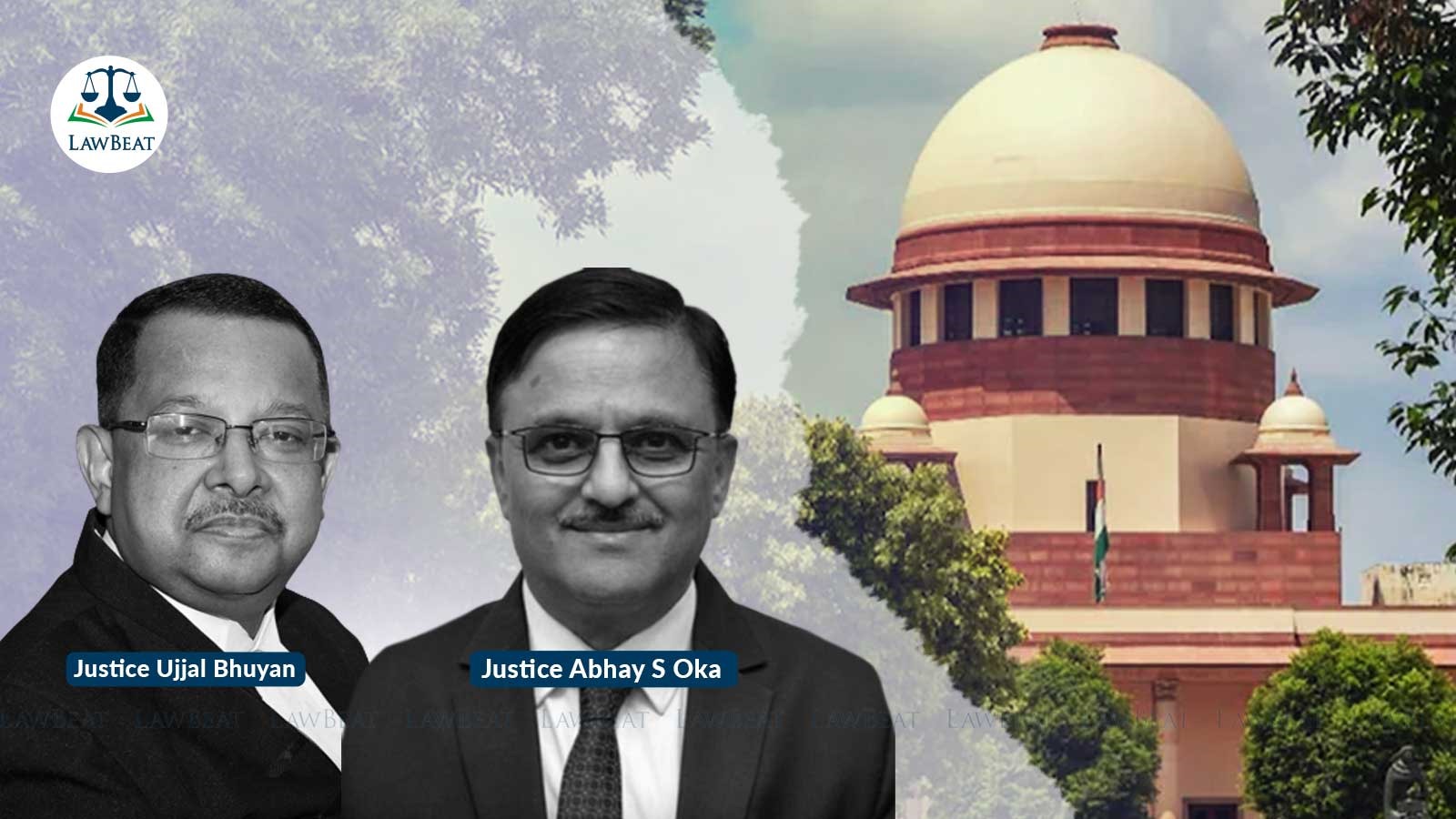Advocate Not Required to Verify Power of Attorney's Genuineness: SC

Court discharged an advocate from criminal proceedings, holding that he acted within his professional duties while filing a tenancy case
The Supreme Court has said that when a litigant claiming to be a power of attorney holder of others approaches a member of the Bar, shows him the original documents, and engages him to file a case, the advocate is not expected to verify the genuineness of the power of attorney unless he has a reasonable doubt about it.
A bench of Justices Abhay S Oka and Ujjal Bhuyan discharged appellant advocate Ismailbhai Hatubhai Patel from criminal proceedings in a 2009 case.
The appellant, a member of the Bar, was accused number three in a charge-sheet filed for offences punishable under Sections 406, 420, 465, 467, 468, 471, 474, 166, 167, 193, 196, 199, 201, 203, 255, 260, 261, 262, and 120B of the Indian Penal Code.
One Anilkumar Popatbhai Satodiya was the first informant. There were three allegations against the appellant in the charge-sheet, namely: (i) accused no.1 – Rameshbhai Maganbhai, who was holding a power of attorney, engaged the present appellant for the purpose of filing a tenancy case. The allegation is that, in connivance with accused no.1, the appellant filed the tenancy case by showing that the power of attorney was genuine, though it was fabricated; (ii) on September 25, 2001, the depositions of accused no.1 and others were recorded in the tenancy case. It was alleged that accused no.1, in connivance with the appellant, presented the wrong persons in place of the original landowners, and someone impersonated Somiben Maganbhai, though she was deceased; and (iii) further, it was alleged that accused no.1 and accused no.5, in connivance with the present appellant, obtained thumb impressions and forged the signatures of the original landowners.
The appellant applied for discharge before the trial court, which rejected the application. The high court, in a petition under Section 482 of the Code of Criminal Procedure, 1973, declined to interfere with the trial court's order.
The counsel appearing for the appellant submitted that even if the allegations in the charge-sheet were taken as correct, a perusal of the tenancy case and the depositions of September 25, 2001, made it clear that the appellant acted as an advocate appointed by accused no.1 - Rameshbhai Maganbhai, who was the constituted attorney of the persons mentioned in the power of attorney. Therefore, no role could be attributed to the appellant in the commission of the offence.
On the contrary, the counsel appearing for the State submitted that the allegations against the appellant pertained to acting in collusion with the other co-accused, namely accused nos.1 and 5, and producing a person who impersonated Somiben Maganbhai.
He submitted that all these matters were subject to trial and that while dealing with a discharge application, the court could not conduct a mini-trial.
The bench examined a copy of the tenancy case filed by accused no.1 - Rameshbhai Maganbhai and six other persons through their constituted attorney, Chinubhai Haribhai Gajera. The court noted that this was specifically mentioned in the cause title.
The tenancy case was signed and verified by the said power of attorney holder - Chinubhai Haribhai Gajera. The vakalatnama filed in the tenancy case by the appellant was also signed by Chinubhai Haribhai Gajera. These documents formed part of the charge-sheet.
"When a litigant claiming to be a power of attorney holder of others approaches a member of the Bar and shows him the original power of attorney and engages him to file a case, the advocate is not expected to get the genuineness of the power of attorney verified unless he has a reasonable doubt about its genuineness," the bench said.
In this case, the court also noted that the appellant had not purported to file the tenancy case bearing the signatures of Somiben Maganbhai, who was allegedly deceased.
The signature on the tenancy application and below the verification clause was that of the power of attorney holder. Even the signature on the vakalatnama of the appellant was that of the power of attorney holder, the court observed.
The court also referred to the depositions of accused no.1 - Rameshbhai Maganbhai and seven others, who were the applicants in the tenancy application recorded on September 25, 2001.
The appellant had admittedly not endorsed or verified the thumb impression of Somiben Maganbhai. In fact, the deposition bore the signatures of accused no.1 - Rameshbhai Maganbhai and one Chandu Magan. It also bore the thumb impressions of six other persons, the bench found.
Neither the signatures nor the thumb impressions were attested by the present appellant. The thumb impressions were attested by one P R Patel, the bench noted.
"Therefore, taking the assertions in the charge-sheet as correct, we find that no case was made out to proceed against the appellant and to frame charges against him," the bench said.
The court set aside the impugned judgment of August 31, 2017, passed by the trial court, and the impugned judgment of June 13, 2019, passed by the high court, and discharged the present appellant from the criminal proceedings.
"We, however, make it clear that we have dealt with only the allegations against the present appellant and have not addressed the allegations against any other accused, including accused nos.1 and 5. All issues in that regard shall remain open," the bench said.
Case Title: Ismailbhai Hatubhai Patel Vs The State of Gujarat
